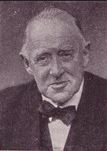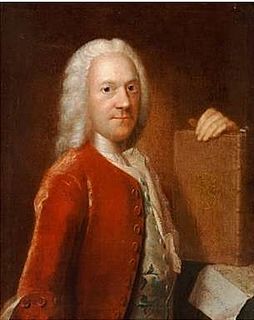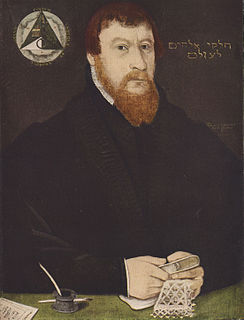 W
WCarl Ferdinand Allen was a Danish historian and professor.
 W
WOttine Caroline Emilie Andersen (1895–1970) was a Danish historian and archivist. An intricate researcher, her first published work Grams Historie (1926) was a detailed history of the Gram Estate at Gram in the south of Jutland which she undertook for its owner Adolph Brockenhuus Schack. After working for the Provincial Archives of Southern Jutland and then those of Zealand, in 1958 she was engaged by the National Archives where she developed a legendary competence in documenting historical records, in particular the archives of Christian II, integrating sources from Stockholm and Oslo. The corresponding registry titled München-Samlingen was published in 1969 as Volume 15 of Vejledende Arkivregistraturer.
 W
WKirsti Andersen, published under the name Kirsti Pedersen, is a Danish historian of mathematics. She is an Associate Professor of the History of Science at Aarhus University, where she had her Candidate examination in 1967.
 W
WVilhelm Rasmus Andreas Andersen was a Danish author, literary historian and intellectual, who primarily focused on the study of Danish literature. He was one of the first to use the term "Golden Age of Culture" to refer to the 1800s, and his focus on bringing Danish literature to the public earned him great popularity. Andersen was instrumental in the development of the School of Radio, as a means of disseminating public education to prevent loss of cultural identity and treasures.
 W
WVitus Bering was a Danish poet and historian. He served as Danish Historiographer Royal and was the great uncle of the explorer Vitus Bering (1681-1741).
 W
WSophia or Sophie Brahe or after marriage Sophie Thott Lange, was a Danish noble woman and horticulturalist with knowledge of astronomy, chemistry, and medicine. She worked alongside her brother Tycho Brahe in making astronomical observations.
 W
WCarl Frederik Bricka was a Danish archivist, historian, and biographer.
 W
WTom Buk-Swienty is a Danish historian, journalist and author, known for his work on the Second Schleswig War.
 W
WJon Jensen Kolding was a Danish priest, historian and topographer. His most notable work was Daniæ descriptio nova.
 W
WKristian Sophus August Erslev was a Danish historian and professor.
 W
WNiels Nikolaus Falck was a Danish jurist and historian.
 W
WSaxo Grammaticus, also known as Saxo cognomine Longus, was a Danish historian, theologian and author. He is thought to have been a clerk or secretary to Absalon, Archbishop of Lund, the main advisor to Valdemar I of Denmark. He is the author of the Gesta Danorum, the first full history of Denmark, from which the legend of Amleth would come to inspire the story of Hamlet by Shakespeare.
 W
WNikolaj Frederik Severin Grundtvig, most often referred to as N. F. S. Grundtvig, was a Danish pastor, author, poet, philosopher, historian, teacher and politician. He was one of the most influential people in Danish history, as his philosophy gave rise to a new form of nationalism in the last half of the 19th century. It was steeped in the national literature and supported by deep spirituality.
 W
WJohan Ludvig Heiberg was a Danish philologist and historian. He is best known for his discovery of previously unknown texts in the Archimedes Palimpsest, and for his edition of Euclid's Elements that T. L. Heath translated into English. He also published an edition of Ptolemy's Almagest.
 W
WArild Huitfeldt (Arvid) was a Danish historian and state official, known for his vernacular Chronicle of Denmark.
 W
WMikael Jalving is a Danish journalist, historian, author and political commentator. Jalving worked as a commentator for Berlingske Tidende and wrote as the newspaper's most widely read blogger, until 2009 when he was hired by Jyllands-Posten. He has a Ph.D. in history from the European University Institute in Florence.
 W
WKåre Johannessen is a Danish historian, writer, lecturer and presenter. He is the former curator at the museum of Trelleborg and Middelaldercentret, where he worked from 1994 to 1999 and again from 2004 to 2015. Today he is a self-employed historian. While working at Trelleborg he recreated the Viking game of knattleikr and injured his knee so badly that he had to use crutches for a time.
 W
WAdolf Ditlev Jørgensen was a Danish historian and National Archivist.
 W
WKnud Arne Jürgensen is a Danish music-, opera-, ballet- and theater historian, dramaturg, curator of exhibitions, senior researcher, dr. phil.
 W
WErland Kolding Nielsen was Director General and CEO of The Danish Royal Library.
 W
WJakob Langebek was a Danish historian, linguist, lexicographer, and archivist.
 W
WBo Lidegaard is a Danish historian, diplomat, author and editor in chief of daily broadsheet newspaper Politiken.
 W
WTroels Frederik Troels-Lund was a Danish historian.
 W
WChristian Molbech was a Danish historian, literary critic, writer, and theater director. He was a professor of literature at the University of Copenhagen and was the founding editor of Historisk Tidsskrift
 W
WLaust Jevsen Moltesen was a Danish educated church historian and Venstre politician. He served as Foreign Minister of Denmark from 1926 to 1929.
 W
WPeter Erasmus Müller, was a Danish historian, linguist, theologian, and bishop of the Diocese of Zealand from 1830 until his death.
 W
WPeter Rochegune Munch (1870–1948) was a prominent Danish historian and politician. He was a leading member of the Radikale Venstre, and represented Langeland in parliament.
 W
WNiels Thomasius Neergaard was a Danish historian and political figure, a member of the Liberal Moderate Venstre and since 1910 of Venstre. He served as Council President of Denmark between 1908 and 1909 as head of the Cabinet of Neergaard I and as both Prime minister of Denmark and Finance Minister from 5 May 1920 to 23 April 1924, leading the Cabinet of Neergaard II and III. His last cabinet office was as Finance Minister.
 W
WRasmus Nyerup was a Danish literary historian, philologist, folklorist and librarian.
 W
WOlaf Heymann Olsen was a Danish historian and archaeologist. He is known to have primarily worked in medieval and Viking Age archaeology.
 W
WAnders Petersen was a Danish school teacher and author of a range of historical, genealogical and statistical books.
 W
WElse Roesdahl is a Danish archaeologist, historian and educator. She has mediated the history of the Vikings for most of her life, including coordination of notable exhibitions on the Viking Age and authoring several books on the subject. Roesdahl's books have been translated into several languages.
 W
WGudmund Schütte was a Danish philologist, historian and writer who specialized in Germanic studies.
 W
WAnders Thiset was a Danish historian, genealogist, heraldic artist, archivist and encyclopedist.
 W
WAnders Sørensen Vedel was a Danish priest and historian. He translated the Gesta Danorum by Saxo Grammaticus into Danish in 1575, and published the influential "Hundredvisebogen" in 1591.
 W
WPeter Sørensen Vig, commonly known as P. S. Vig, was a Danish American pastor, educator, and historian in the Lutheran church. He was integral to the formation of the Danish Evangelical Lutheran Church in North America and the United Danish Evangelical Lutheran Church.
 W
WErich Christian Werlauff was a Danish historian, librarian and professor.